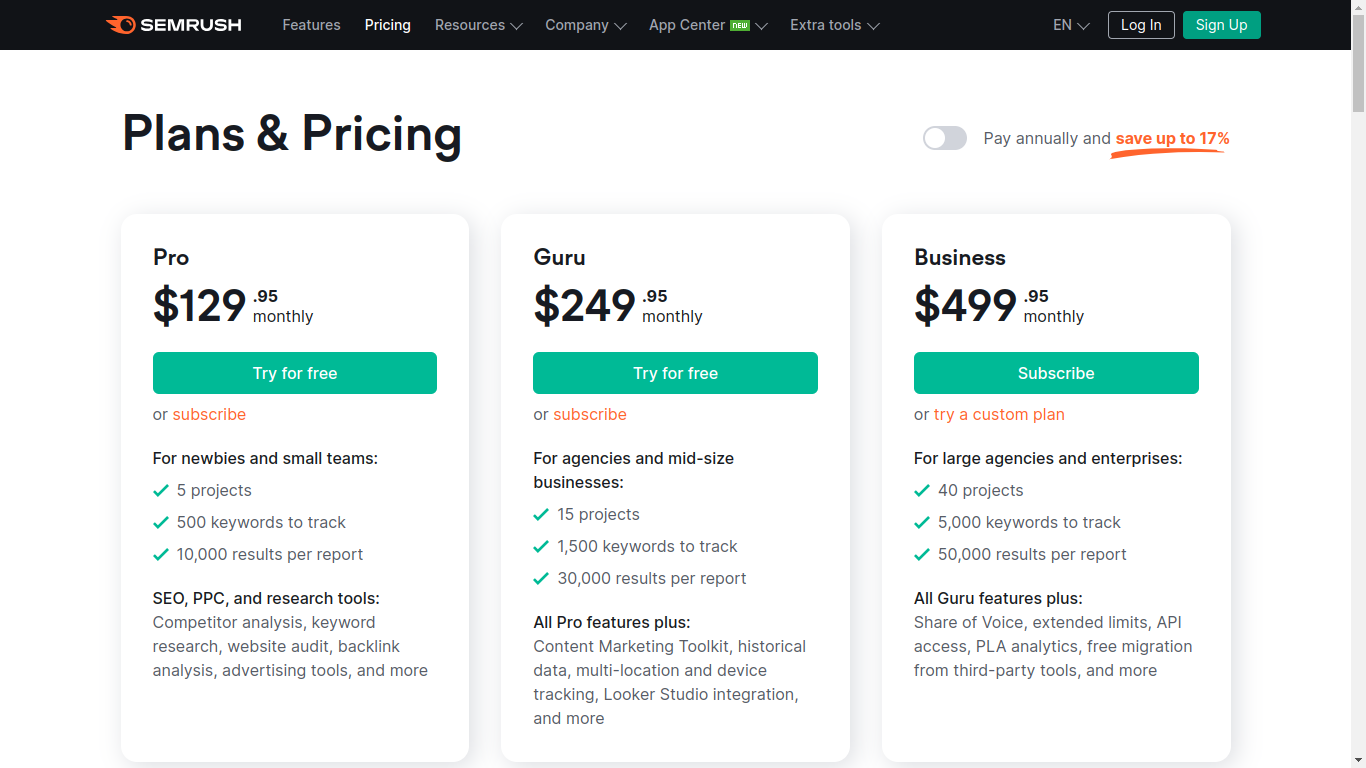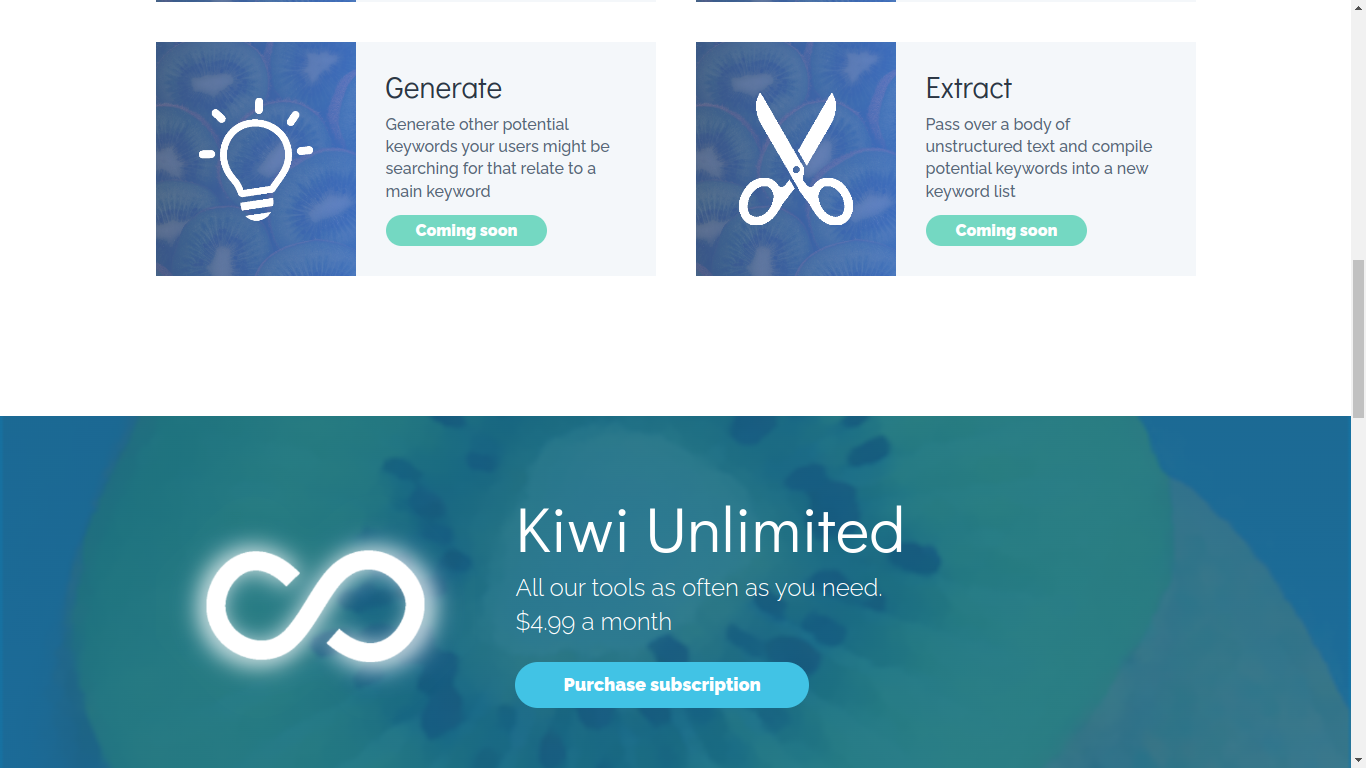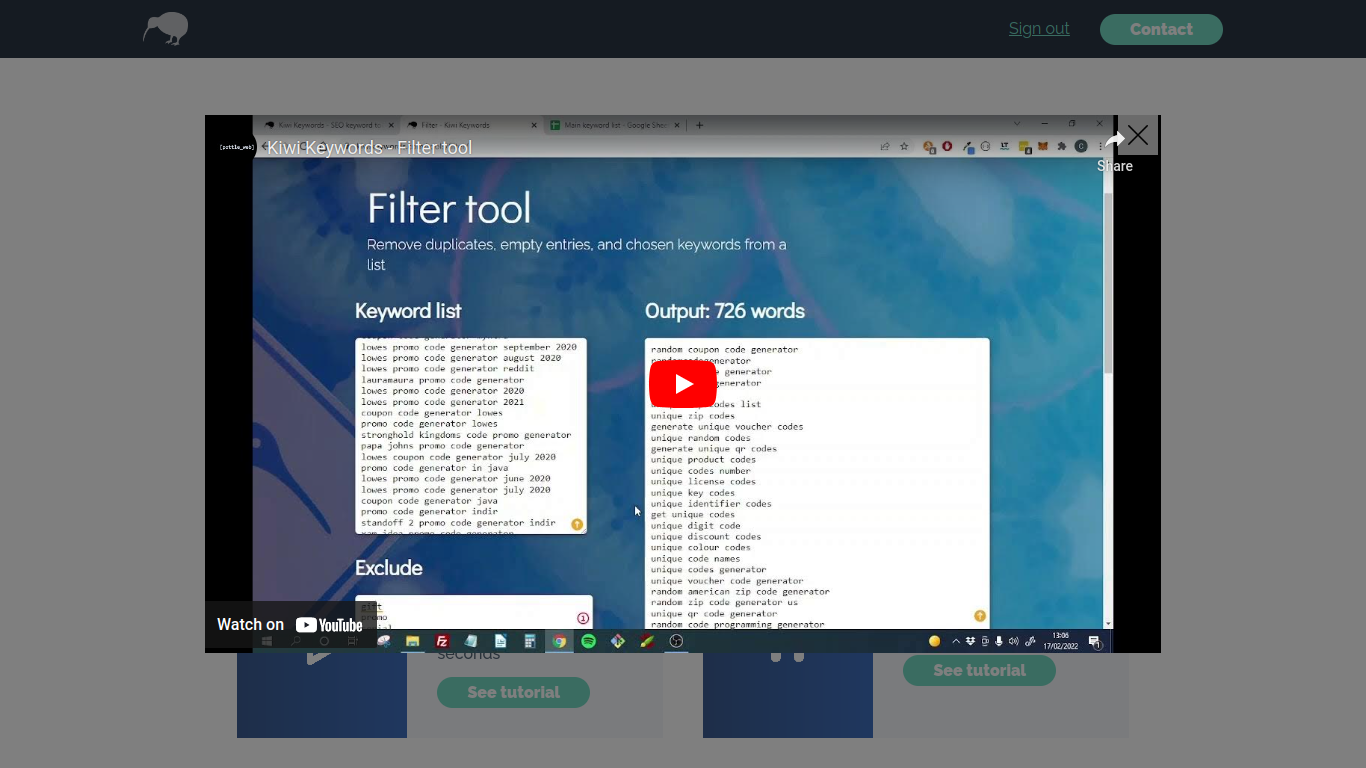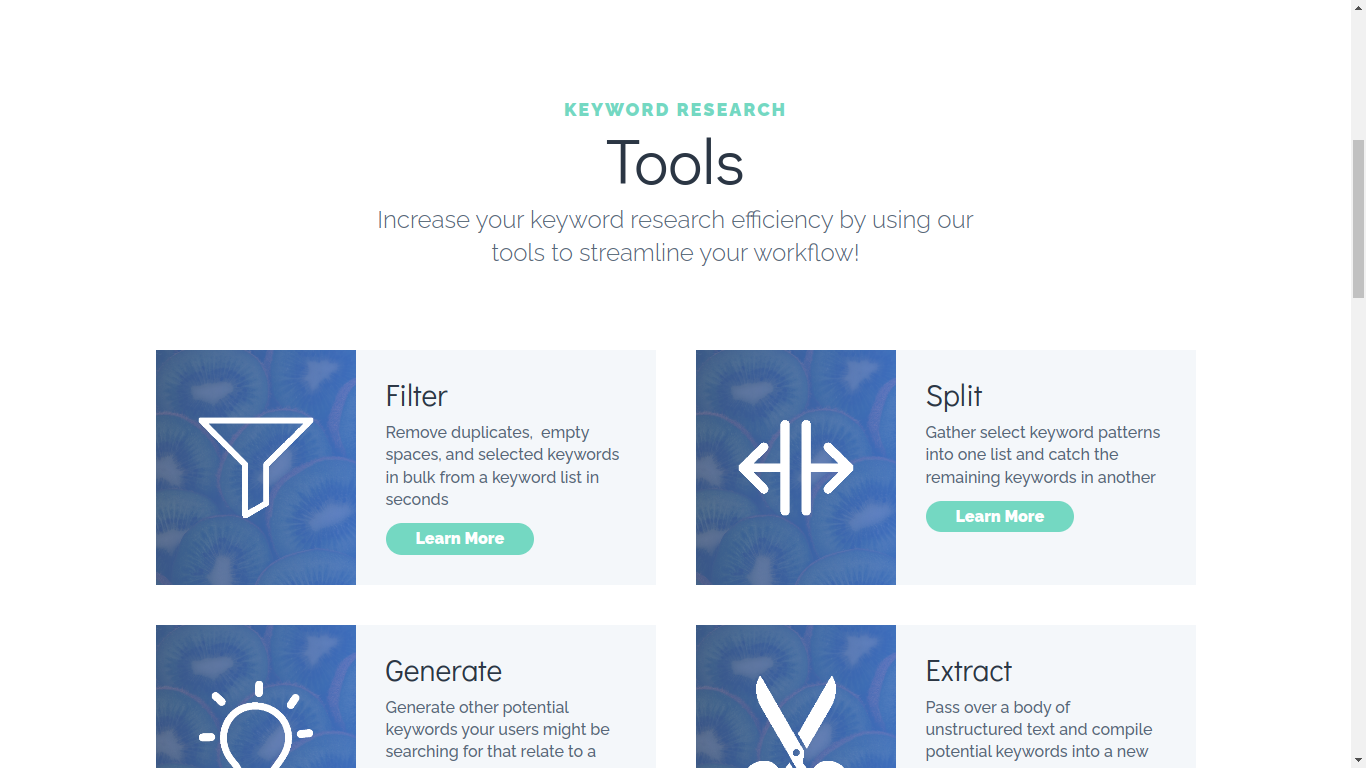
On the modern web optimising a website to appear near the top of search results is essential. However competition is fierce to the extent that 'search engine optimisation' has risen to become an entirely new profession in its own right.
To aid optimisers to bring increased traffic to a website, SEO-specialist software is often employed that gives its users insight as to what strategies may have the greatest impact.
Among such software, several tools stand out as being the main players. Among them: SEMRush, AHRefs, and Moz. And looking at their price tags, it's clear that they know it too!
Unfortunately, the available toolset for small business owners or hobbyists is significantly less equipped. Having been both myself, I know it's unlikely many will have a spare $129.95 per month just sitting idly by.
This being the case there is observably a gap in the market for those who don't need the full scope of tools on offer by these bigger companies, but do want to optimise their websites to bring in greater traffic.
Kiwi keywords addresses that need, providing a dramatically simplified toolset to assist the target audience to make greater impact with their projects at a fraction of the price.


This project started off with me in exactly this situation. I wanted to improve the SEO of one of my own project websites and didn't fancy splashing out on premium tools. As a result, I had been whittling down a list of potentially relevant keywords and was doing it manually by hand. This list unfortunately was a mishmash of duplicates and derivations that made it incredibly tricky to target and remove all of the obviously irrelevant entries in one fell swoop with a spreadsheet's 'search' function.
To speed up the process, I wrote some code in JavaScript that could filter the entire list based on my own parameters, outputting the results into a single text area in the ideal format.
Being aware of the pricing of those other SEO tools (having made use of them myself at various points in my professional journey) it dawned on me that others may benefit from a reduced subset of tools to tackle the problem of SEO for their own businesses.
So I decided it would be a good exercise to look into supplementing the code I had with other tools, to provide a rudimentary SEO toolset at a fraction of the cost of the full suites, for those in a similar position to myself.
Making use of OpenAI's API, I was able to supplement the tools I had built with 2 additions: a keyword extractor and a keyword suggestion tool.
The extractor takes a body of text and identifies the key words within it that likely have a high potential SEO impact. A good use case for this is competitor analysis. By pasting the text content from a competitor's website into the tool, you can quickly and easily identify the main keywords their SEO strategy is targeting. From this you can also see how you might outmanoeuvre them to claim the top spot in the search engine results, or opt to target a different keyword niche entirely.
The suggestion tool makes suggestions based on a key phrase, in order to provide you with alternative strategies for your SEO targeting. For example, someone selling artwork might enter 'High quality art work' as an input. The output would be many derivations and permutations of that input, interpolated with appropriate synonyms. Essentially it's a tool for brainstorming potential strategies that go hand in hand with your main target, very handy.


To me, this project was less about actual customer acquisition and more about understanding the speed it could take me to get an idea from conception to market. The website as a whole itself and the tools were built in about a week, a good benchmark for future projects. I also now have the infrastructure to continue to pursue and refine this idea should I so choose.
In addition, this project also brought me face to face with leveraging a WordPress site as a SaaS, which was something I'd not done before, as well as customising WooCommerce programatically, and integrating AI-based logic via an API.
Other demos coming soon
Other case studies
Web development studio
Website build
Website build
Website build